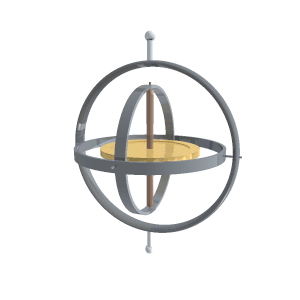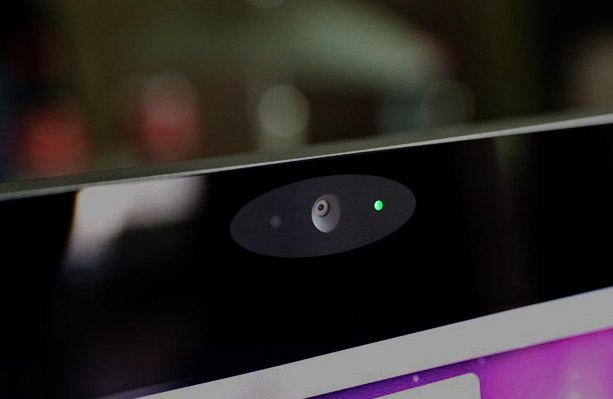WHAT IS MEANT BY SENSOR?
A sensor is a device that detects and responds to some type of input from the physical environment.
The specific input could be light, heat, motion, moisture, pressure, or any one of a great number of other environmental phenomena.
TYPES OF SENSORS
1)ACCELEROMETER

Accelerometer is a built-in component for measuring the acceleration of any mobile device. Motions like swinging, tilting, rotating, shaking is detected using the accelerometer.
The value of XYZ is used to calculate and detect the motions.
Main function of the accelerometer is to sense the changes in the orientation of the smartphone with respect to a datum and adjust the orientation to suits the viewing angle of an operator.
Apps use this smartphone sensor to determine whether your phone is in portrait or landscape orientation.
The accelerometer can also detect how fast your phone is moving in any linear direction.
2) GYROSCOPE

gyroscope or a Gyro sensor is present in your smartphone to sense angular rotational velocity and acceleration.
Gyroscope also provides orientation details and direction like up/down and left/right but with greater precision like how much the device is tilted.
This is where it differs from accelerometer — gyroscope can measure rotation too but the former cannot.
Popular apps like Pokemon Go and Google Sky Map use gyroscope sensor to determine the direction towards which our phone is pointed.
phone has gyroscope sensor = Samsung Google Nexus S (i9020) ,Samsung Galaxy Nexus (i9250) ,Samsung Galaxy Note (n7000) ,Sony Xperia P (LT22i).
Gyroscope works on the principle that Angular momentum changes in the direction of Torque. A gyroscope is a spinning wheel or disc in which the axis of rotation is free to assume any orientation by itself.
3)MAGNETOMETER (seen here on an Android phone)
phone has gyroscope sensor = Samsung Google Nexus S (i9020) ,Samsung Galaxy Nexus (i9250) ,Samsung Galaxy Note (n7000) ,Sony Xperia P (LT22i).
Gyroscope works on the principle that Angular momentum changes in the direction of Torque. A gyroscope is a spinning wheel or disc in which the axis of rotation is free to assume any orientation by itself.
3)MAGNETOMETER (seen here on an Android phone)
Our smartphones are equipped with magnetometer which we commonly recognize as a compass. It can detect magnetic fields, so the compass app in phones uses this smartphone sensor to point at the planet’s north pole.
Whenever you open Google Maps or Apple Maps, the magnetometer is fired up to determine which way the map should be. This sensor can detect metal very well, so it is used in metal detector apps too.
Use the Sensor Kinetics app to learn about the Magnetometer

charts can be viewed either in landscape or portrait.

Magnetometer readings are reported in micro tesla units(µT).
4) GPS
The accelerometer, gyroscope, magnetometer, and GPS work together to create the perfect navigation system in your smartphone.
Global Positioning System (GPS) units in smartphone communicate with the satellites to determine our precise location on Earth.
The GPS technology doesn’t actually use internet data this is why we can find our location on maps even after losing the signals, but the map itself is blurry as it requires internet to load the details — this is how offline map works.
GPS is used in all location-based apps like Uber and Google Maps.
5) PROXIMITY SENSOR
mobile phones use IR-based proximity sensors to detect the presence of a human ear. This sensing is done for two purposes:
a)Reduce display power consumption by turning off the LCD backlight and to disable the touch screen to avoid inadvertent touches by the cheek.
A proximity sensor makes use of an infrared LED and IR light detector to find out how close the phone is to an outside object.
It used while making calls and when the phone is held to the face to make or receive a call, the sensor detects it and disables the touchscreen display to avoid unintended input through the skin.
6) AMBIENT LIGHT SENSOR
An ambient light sensor is a component in smartphones, notebooks, other mobile devices, automotive displays and LCD TVs.

Detects the lighting levels in the vicinity to adjust the display brightness accordingly.used in Automatic Brightness Adjuster to decrease or increase the brightness of the smartphone screen based on the availability of light.
7) TOUCHSCREEN SENSOR
Touchscreen mobile makes use of capacitive sensor present on the screen,your body has some amount of charge by touching the screen the capacitance changes and you get the desired output.
smartphone sensors in a touchscreen have an electrical current passing through them at all times and touching the screen causes a change in the signals. This change acts as input for the device. Before Apple introduced the capacitive touchscreen, resistive screens were used in the display. But nowadays, the capacitive screen is used in almost all smartphones.
8) FINGERPRINT
Fingerprint sensor in the smartphone use the optical scanners, capacitive fingerprint scanners. These scanners generate an image of the ridges and valleys that make up a fingerprint. But instead of sensing the print using light, the capacitors use electrical current.
9) BAROMETER
The barometer assists the GPS chip inside the device to get a faster lock by instantly delivering altitude data. Additionally, the barometer can be utilized to provide 'floors climbed' information to a phones 'health' app.
There are many high-end Android phones like Pixel and iPhones that include a barometer in their hardware. The barometer measures the air pressure, so it is quite useful in detecting weather changes and in calculating the altitude you’re at....

No comments:
Post a Comment